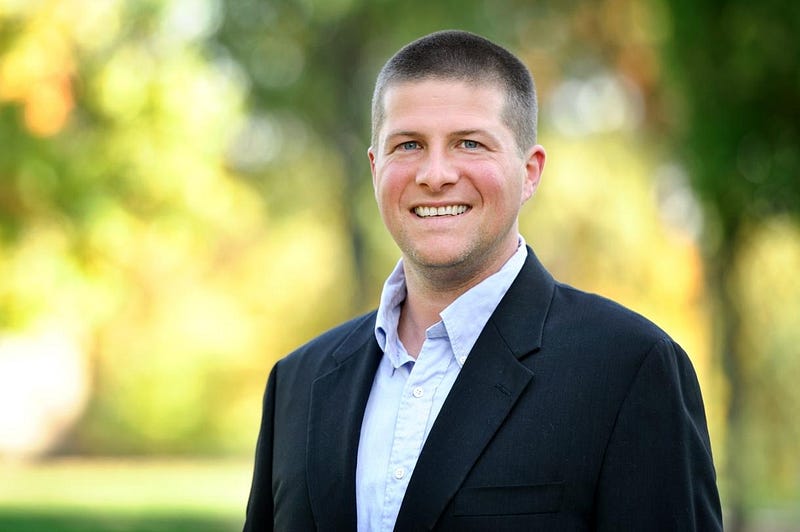
Christian Goodwillie is the LITS Director and Curator of Special Collections at Burke Library. Photo courtesy of Hamilton College.
As a part of the new Lunch Series, “Celebrating Faculty Achievements,” Christian Goodwillie, LITS Director and Curator of Special Collections at Burke Library, delivered a talk on his recently published book, Richard McNemar: Frontier Heretic and Shaker Apostle, which follows the life
of Richard McNemar, the leading publishing spokesperson for the Shaker community.
The Shaker community, founded in 1747, centers on egalitarian ideals and espouses leading a simple life by abstaining from sex and living community. Richard McNemar played a key role in spreading public awareness of the Shaker community. The community fell under public and legal scrutiny, rendering McNemar’s writings fodder in public’s accusations against Shakers. Tactfully untangling the complexities of the masses of manuscripts and historical records of Mcnemar’s life, Goodwillie’s biography illuminates a narrative of McNemar’s career and the legacy he left on Shakerism and American religion.
Explaining the story of his interest in Shakerism, Goodwillie recounted hitting the open road with a college friend to see another utopian community in Tennessee when the ended up staying in a small Shaker community for the night.
Goodwillie became engrossed by the Shakers’ radical gender politics and revolutionary view of God. “The people were celibate, and had communal property and thought that God was male and female, and I mean. It was just like I’d never thought about any of this stuff before, and I thought it was so fascinating.” Returning from his road trip, Goodwillie’s interest only grew, and he has dedicated 10 years to the telling of Richard McNemar’s story.
Reflecting on the process of writing his book, Goodwillie shared the difficulties he experiences pouring over masses of manuscripts in search of answers and meaning. “There were nearly a hundred letters. Four very dense journals. And then tens of printed
publications…that was just his papers. Then there were all the papers of all the communities he lived at.” He shared his experience researching at the Library of Congress in D.C.: “And I just set up there on a table and not even with my phone, but with a digital camera, photographed every single page of all those documents.” Printing out the pictures, ordering them and finally engaging in painstaking analysis, Goodwillie’s research proved cumbersome and rife with obstacles. His biography sent him traversing the country, visiting sites in Ohio, Kentucky, Massachusetts and
Maine.
Goodwillie has written a total of 12 books, two of them being preparatory to this biography. In those two books, Goodwillie translated the text of Shaker’s hymns to musical scores, turning blocks of lyrics into tune with musical scores underlaid with lyrics. “You’re bringing something back to life that no one has heard for 200 years,”said Goodwillie.
Goodwillie insisted on the value in studying Utopian communities at large “These are groups of people who have intentionally separated themselves from the larger society and they’re doing it for a reason..what you find in these groups is they are hotbeds for social experimentation and this is usually in a really progressive way.”
Tracing the history of Shakers in the court of public opinion, Goodwillie said: “I look at the Shakers, who in the eighteenth century were physically attacked because they were dancing in worship…and by the twentieth century they’re national icons and their material culture is being documented by our own federal government.”
























